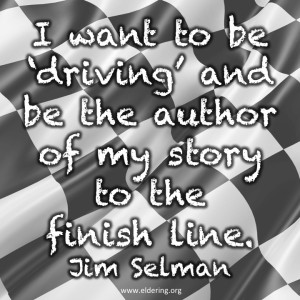 Another year. This year’s resolutions looked pretty much the same as last year and the year before that so I’ve resolved to stop making New Year’s resolutions. Nonetheless the year-end (or beginning) is a time that calls for taking stock and reflecting on the past and the future. This year the big questions for me have to do with the next 10 years.
Another year. This year’s resolutions looked pretty much the same as last year and the year before that so I’ve resolved to stop making New Year’s resolutions. Nonetheless the year-end (or beginning) is a time that calls for taking stock and reflecting on the past and the future. This year the big questions for me have to do with the next 10 years.
I have laughed a lot about how easily I can fall into making just about anything significant. I even made significance significant by noting that the word literally breaks down to being a ‘sign-if-I-can’t’. We only make significant those things we aren’t responsible for. It is a terrible affliction wherein I dramatize a subject as disproportionately important and demanding exceptional appreciation or focus and sometimes action. The point is, in the larger scheme of things nothing is really significant and the important things end up taking priority anyway.
That said, my latest ‘significant’ subject however, is related to the ever-present awareness that I am old. Now the subject of ‘aging’ has been my avocation since I was 40 and I have a very well grounded, and believe, a healthy outlook on the subject. I don’t fear the future and even look forward to it. I have never been happier and more creative and I am in good health. My intention in founding the Eldering Institute was to shift the narrative about aging from one of gradual decline to one of the end of life having as much possibility as the beginning. So far, I think I am a living example of this vision.
Nonetheless when we pass the 70-year mark, it is impossible to ignore the fact that you are old. Yes, it is relative and doesn’t mean anything, but as a practical matter and relative to how the rest of the world assesses age, 70 is old. Saying that 70 is the new 50s may be true in terms of life style and in my case it feels that way, but the fact is that 70 is 70 and medical technology not withstanding suggests that there is a lot less time left in this story I call my life. All things considered, I may have a reasonable expectation of living another 30 years, but it would be foolish to plan the rest of my life based on that assumption. Even though the ‘over 90’ segment of the population is tripling from where it was in 1980, another 20 years would still put me in the 10% of the population reaching that age. My conclusion is that I should expect to have about another decade of productive healthy living and any thing beyond that will be a bonus which I am definitely intending to collect on, but not count on.
Having reached this conclusion the obvious question is what do I want to do with this last decade? One bit of wisdom that comes with the question is that there are virtually no constraints on the answer. Here are the questions I am using to frame my inquiry:
Where do I want to live?
Who do I want to be with?
What do I want to learn?
What do I want to contribute?
How do I want to spend my time?
What’s needed that I can provide?
What do I want to say?
What do I want to leave behind?
An interesting aspect of looking at these next 10 years as the final 10 years creates a curious irony at least for me. On one hand, I am absolutely satisfied and fulfilled with my life and don’t need to change a thing. I am not seeking ‘more’ of anything and each of these questions could lead me to continue on exactly the same path I am on. I have often shared that I feel I’ve won the lottery of life.
On the other hand, I don’t want to have the future, including these final 10 years, to occur simply as a ‘drift’ and extension of the past. I want these years to be a choice and a full expression of who I have been and who I want to be. I want to be ‘driving’ and be the author of my story to the finish line. I also want to be open to the possibility that there are many more surprises ahead of me just as most of my life has been surprising in retrospect.
For now, I leave you with the questions. I’ve decided that the questions are a lot more interesting than my New Year’s resolutions, and may actually result in a difference next year.
